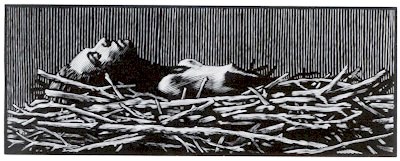
“After two months she returned to her father, and he did with her what he had vowed; she had remained a virgin. So it became a law in Israel…”-Judges 11:39
We’ve been discussing the controversial topic of Jephthah killing his daughter and offering her up to the Lord as a burnt sacrifice.
And I gotta tell you…some folks are losing their freakin’ minds over even the slightest suggestion that Yiftach really did kill his daughter.
Of course, it is only those who disagree who are the most vocal.
And if you’re one of them, you had best believe they’re a ton of people who DISAGREE with you…including ALL of the commentary on this story provided over a 2000 year period from when the event happened.
But having said that, I think it’s only fair to share the opposite view as well.
So what are the reasons some folks give to explain why Yiftach did NOT really kill and sacrifice his daughter?
Emotions run high when discussing this topic and it can be hard to sift through the barrage of arguments the other side bombards their opponents with.
However, once all of the dust has cleared and settled, all of their arguments can be boiled down to the following two main points:
–How you interpret the phrase “she had remained a virgin”.
And the argument that…
-God would never allow such a thing to happen and then make it okay for Yiftach to be considered a hero in other parts of the Bible.
Let’s deal with the first one today.
So we’re told that Jephthah’s daughter (whose name we’re never given by the way) not only understood the seriousness of the vow her father made but that her reverence for God was so great that she graciously accepted the consequences.
But before she would become a sacrifice she asked her father to give her a 2 month period to mourn the future she would never have.
Yiftach agreed.
Then we’re told that after the 2 months passed, she returned home and then the Scripture just says…
“…he did with her what he had vowed;
she had remained a virgin”.
And in addition to that, we’re told…
“…that the women of Israel
would go every year
for four days to lament the
daughter of Yiftach from Gil‘ad.“
So again, the key point here is the phrase…“and she remained a virgin”.
Sometime after 500 A.D. and NOT ANYTIME BEFORE, some folks came on the scene and concocted this idea that the phrase “she remained a virgin” really meant her “sacrifice” was that she was NOT killed but instead lived out the rest of her days as a virgin.
Later on, some imaginative commentators came up with the idea that she became a worker at the Tabernacle.
Because it was required that any woman worker at the Tabernacle had to be a virgin.
So this was considered to be the great “sacrifice” Yiftach’s daughter made because in those days because it was considered a horrible thing if a woman did not marry and have children.
I mean back in those days, a woman’s primary, actually only duty was to marry and have kids…lots of them.
In addition, the text clearly states that Yiftach’s daughter was his only child.
So if she didn’t have any kids, that meant the end of Jephthah’s family forever and for all time.
Again, back in those days, that was a nightmare proposition and apparently that’s the real reason why Yiftach cried out in grief when he said…
“Oh, no, my daughter!
You’re breaking my heart!
Why must you be the cause
of such pain to me?
I made a vow to Adonai,
and I can’t go back on my word.”
And there you have it.
That’s why some folks argue there’s no way Yiftach could have killed his daughter.
But we ain’t done homies.
We’ll continue this discussion the next time we meet.



Leave a Reply